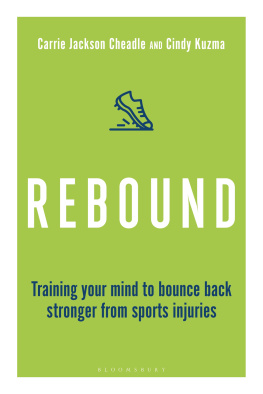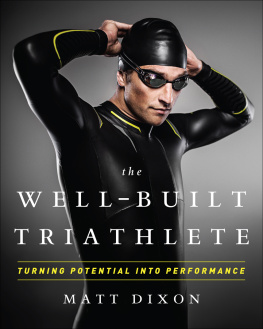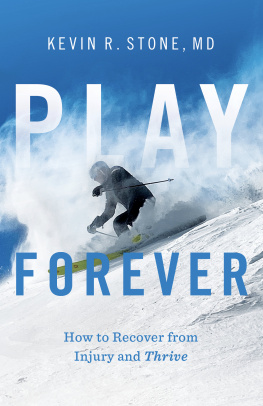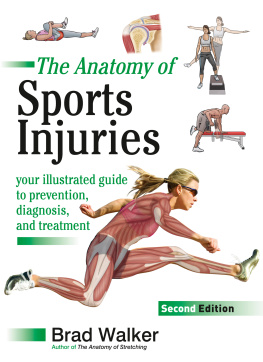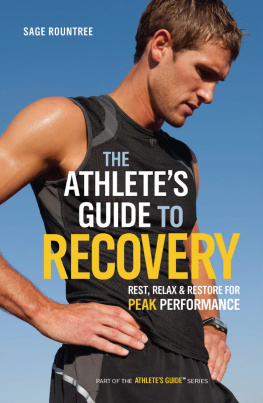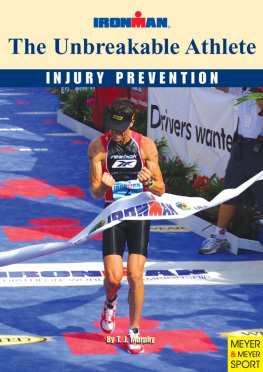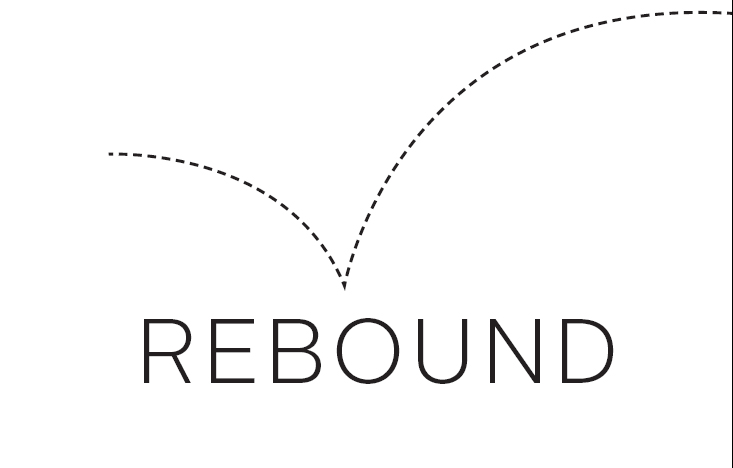

Contents

Were sorry youre here, but were glad youre with us.
Thats the tagline of our podcast and the virtual support group we host on Facebook, both called The Injured Athletes Club (learn more at www.injuredathletesclub.com). And its the message we want youthe sidelined athleteto hear, first and foremost.
If youre anything like us or the athletes we know, injury has thrown you for a loop. Youre feeling sad, scared, isolated, uncertain, or all of the above. Layered on top of that might be some relief at having a break from the pressure of training or competingfollowed swiftly by guilt, remorse, and yet more despair. And though you might have doctors, physical therapists or physiotherapists, and athletic trainers to guide you through the physical steps of recovery, when it comes to emotions, you might feel youre all on your own.
Until now. Were sorry youre injuredno athlete wants to be sidelined. But were glad you found your way to these pages.
When injured athletes first meet with Carriea mental skills coach certified by the Association for Applied Sport Psychologytheres often a visceral, physical reaction. Carrie can see their shoulders drop, the tension in their faces relax, their eyes brighten with a glimmer of hope. Im not alone , they realize. There are others who get it. And now, I see theres a way forward.
Over time, they learn solid, tangible skills to handle their emotions and take control of their recovery. No matter where they are in the injury and rehab process, they realize, there are ways they can optimize the situation to give themselves the best possible chance of a positive outcome.
Its our hope that this book can serve as a similar source of relief and support. Wherever you are in your injury journey, there is a way forward.
Get Ready to Bounce Back
The degree to which an athlete recovers from injury varies, as does the ease with which they do so. Some of the differences have to do with factors like the severity of the setback. However, even athletes whose lives are irrevocably altered by injury often make what experts call a remarkable recoverycoming back mentally and physically stronger, whether they are able to return to their sport in the exact same way or not. For instance:
Kevin Ogar, paralyzed in a weightlifting accident, now operates a fitness program for veterans, and coaches in CrossFits adaptive program (his storys )
Carrie Tollefson overcame a cancer scare, surgery to graft bone into her foot, and torn pelvic-floor muscles to become an Olympian and then a top television commentator (see )
Fiona Ford, a triathlete badly injured in a collision with a vehicle, subsequently reached the podium at the Ironman World Championships in Kona (shes ).
How are these athletes able to rise again after injuries that might cause others to crumble? The key is what happens when athletes reach critical, difficult moments in their injury process, from the first symptom onward. For some, each one becomes an opportunity to rebound.
In physics, a rebound occurs after a collision. Say you drop a red bouncy ball from the top of a gym riser. First, the ball speeds toward the floor; at the moment of impact, all its energy is still moving downward. Then, after the ball hits the ground, there is a transfer of that energya momentum shift. The ball changes direction and accelerates back upward.
As a healthy athlete, you might feel like youre moving along in one direction just fine, training and competing in your sport. Thenblammo! You get injured, and it feels like youve hit the floor. Your injury represents a major collision point, and then you might face a few more bumps, such as surgeries, new pains, and fears of re-injury. After each impact, where does your energy go?
During the injury and recovery process, youll encounter many tough moments. Your setbacks can seem too enormous to overcome; you might lack the support you need to make progress. In those times of struggle, your energy is moving downward. You may sink a bit deeper into doubt, fear, and depression. You can feel as if youre deflating with a splat.
But in every challenging set of circumstances, there are wayseven small onesto regain control and take action. You might test out a positive mantra, reframe a goal, ask specifically for a type of support you need, or even just pause for a moment before reacting to a piece of bad news. In that moment, you begin to transfer energy from the fall to the bounceincreasing your odds of rising again, and this time even higher.
These responses seem to come almost naturally to certain athletes. Indeed, studies have linked personality traits that scientists have long perceived as relatively fixed to a swifter and more complete recovery from injury. For instance, athletes who score high on a trait called hardinessa personality type characterized by resilience under stressappear more likely to experience personal growth after getting hurt.
But if mindset were entirely predetermined by genetics or even by how your parents raised you, Carrie and other mental training coaches and sport psychology pros wouldnt have much of a career. Fortunately, thats not the case, and research has begun to bear out what clinicians like her have long known to be true: you can work on your mental skills to improve your injury experience .
A review of the literature by Australian scientists, published in the British Journal of Sports Medicine , found that athletes with positive psychological responses to their injury were more likely to return to their sport. Other research has shown that deliberate focus on practices like goal-setting, imagery, and positive self-talk can affect how well, and how swiftly, athletes recover.
In one recent study of a diverse group of athletes from the United States, the United Kingdom, and Finland, almost three-fourths of those who reported using mental skills after their injury said that doing so helped them recover more quickly. But not everyone knows about these skillsin that same study, of more than 1,200 athletes surveyed, only one-fourth had experience applying these psychological techniques.
Fortunately, youll soon see how mental skills empower you to shift your momentum from the downward plunge and impact of injury to the upward trajectory of your recovery. Instead of crumpling or smashing, you can bounce back stronger. In other words: you can REBOUND.
Through Carries work as a clinician and Cindys as a journalist, as well as through our personal experience with injuries, weve come to understand a few key points:
Injuries suck, and the impact is mental as much as it is physical.
Focusing on mental fitness as well as physical rehab is critical to a successful recovery.
Few injured athletes receive psychological support as they navigate the process.
Those with superior mental skills often come back mentally and physically strongerwithin their sport and beyond itachieving remarkable recovery.
Every day in her work, Carrie demystifies the machinations of injured athletes minds. Through the types of mental skills and drills she teaches and prescribes, athletes optimize their mental performance just as they would their physical abilities and techniques. Now, with this book, were sharing the same strategies that have helped her counsel hundreds of athletes back from the brink and through the rebound, toward a remarkable recovery. Well also highlight bounce points in many of the athletes stories we shareplaces where they hit a bump, then used mental skills to come back stronger.

